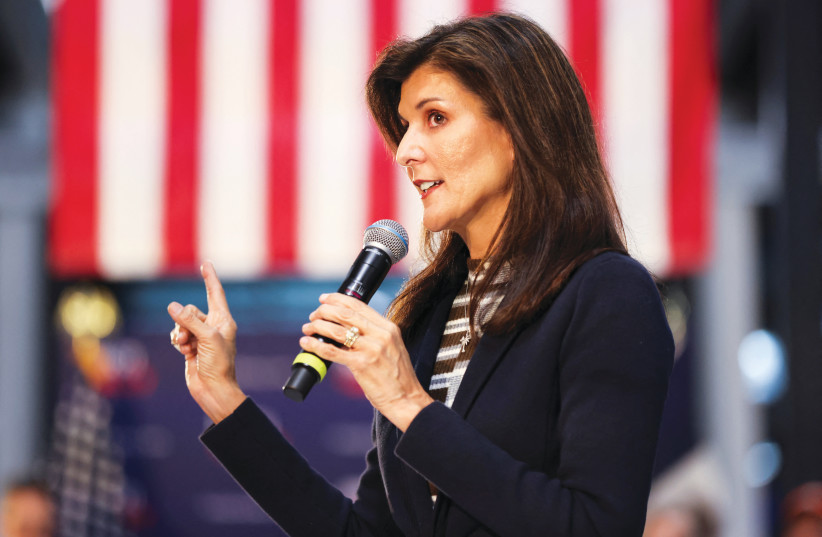Nikki Haley, the former South Carolina governor and US ambassador to the United Nations who was a favorite of pro-Israel Republicans, withdrew from the race for the GOP presidential nomination after losing nearly every Republican state primary thus far by wide margins.
But unlike other party candidates who dropped out, Haley did not endorse Donald Trump, the former president and presumptive nominee. She cited Israel in her concession speech.
“Our world is on fire because of America’s retreat,” Haley said in the speech Wednesday in Charleston, South Carolina, after devastating losses to Trump in 15 out of 16 primary races on Super Tuesday the night before. “Standing by our allies in Ukraine, Israel, and Taiwan is a moral imperative, but it’s also more than that. If we retreat further, there will be more war, not less.”
Trump has said he would be a more formidable backer of Israel were he reelected. But he has campaigned against President Joe Biden’s efforts to secure more funding for Ukraine in its war against Russia and has called for defense assistance grants to Israel to become loans. He has also helped stymie a defense assistance package that would aid Ukraine, Israel, and Taiwan.
Both candidates were seen as solidly pro-Israel
Haley drew establishment Jewish Republican support because of her efforts to attract moderate voters through conciliatory language and her relatively moderate positions on issues such as abortion. She and Trump were both seen by Jewish Republicans as solidly pro-Israel, but Trump’s recent attacks on Israeli Prime Minister Benjamin Netanyahu and his pride in being unpredictable has worried some in the pro-Israel community.

The Republican Jewish Coalition, which has at times embraced Trump tightly and at other times criticized his declining to disassociate from the far right fully, endorsed him immediately after Haley’s speech.
Along with the RJC, Trump retains strong support among some influential pro-Israel figures and donors who point to his staunch backing of Israeli government policies as president, among them moving the US embassy to Jerusalem.
“Donald J. Trump will be a president of prosperity, security, and peace through strength,” the RJC said. “We know this because of his lengthy and trailblazing record of foreign and domestic policy achievements.”
In her speech, Haley also appeared to take aim at Trump’s inflammatory rhetoric. “As important, while we stand strong for the cause of freedom, we must bind together as Americans,” she said. “We must turn away from the darkness of hatred and division.”
Trump, she said, must earn her endorsement. “It is now up to Donald Trump to earn the votes of those in our party and beyond it who did not support him and I hope he does that,” she said. “At its best politics is about bringing people into your cause, not turning them away.”
